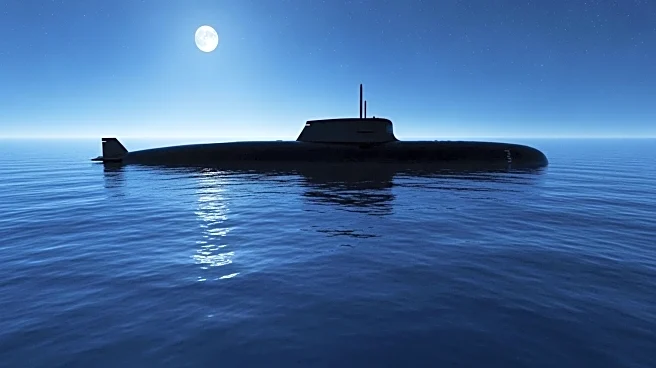What's Happening?
The Russian Navy's presence in the Mediterranean has significantly decreased since the onset of the Ukraine conflict. Initially, there were ten Russian warships, including two cruisers and two submarines, in the region. Currently, only a single Steregushchy-class corvette, RFS Boiky, is escorting the arms carrier Sparta IV. This reduction follows the departure of the Russian Kilo Class submarine RFS Novorossiksk and the Goryn-class tug Yakov Grebelskiy, which left the Mediterranean after a port visit to Algiers. The movements of these vessels have been closely monitored by international observers, including a US Navy Poseidon P-8A maritime surveillance aircraft.
Why It's Important?
The reduced Russian naval presence in the Mediterranean reflects broader strategic and logistical challenges faced by Russia amidst its ongoing military engagements. This development could impact Russia's ability to project power and influence in the region, particularly in relation to its military and economic interests in Syria. The presence of the arms carrier Sparta IV, potentially heading to Tartus, suggests ongoing military cooperation with Syria, which remains crucial for Russia's geopolitical strategy. The situation underscores the strain on Russian military resources and the potential implications for regional security dynamics.
What's Next?
The future of Russia's naval operations in the Mediterranean will likely depend on its ability to sustain military logistics and maintain strategic alliances, particularly with Syria. The arrival of the Russian Northern Fleet tanker Kama in the region indicates an attempt to bolster naval capabilities. Observers will be watching for any further military movements or diplomatic engagements that could signal shifts in Russia's Mediterranean strategy. The outcome of these developments could influence regional power balances and affect international relations, especially with NATO countries monitoring the situation closely.
Beyond the Headlines
The diminished Russian naval presence may also reflect internal challenges within Russia's military infrastructure, such as maintenance and resource allocation issues. This situation could lead to a reassessment of Russia's military priorities and strategies, potentially affecting its global military posture. Additionally, the ongoing conflict in Ukraine continues to divert resources and attention, impacting Russia's ability to sustain operations in other regions.









